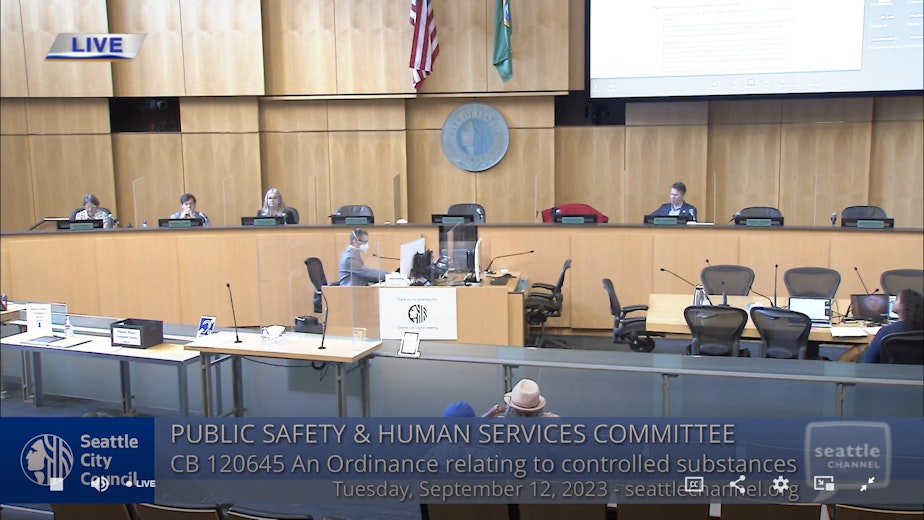Seattle City Council returns to drug law debate with new proposal

Proposals to update Seattle's drug laws have bounced around city hall all summer. The latest attempt is now ready for full council consideration.
Washington state’s new drug possession law took effect this summer, but Seattle officials have been conflicted over how to enforce it, and whether to give City Attorney Ann Davison’s office the ability to prosecute these cases. The City Council voted down one attempt to codify the law last June.
Mayor Bruce Harrell then convened a work group to develop a new version of the ordinance which is now before the City Council. The council’s Public Safety Committee approved that new version in a 4-1 vote Tuesday.
It’s expected to go to the full council on September 26, although it could come up as early as September 19.
RELATED: Can mayor's proposal mend rift between Seattle and Washington's drug laws?
The proposed ordinance contains the state's new criminal penalty, which makes drug possession and public use a gross misdemeanor. But the proposal also emphasizes the goal for police to divert people away from arrest and toward services and treatment. Committee Chair Lisa Herbold praised Harrell’s “nuanced” approach to implementing state law, and said the proposal crafted by the work group struck the right balance.
Sponsored
“The law before us today states that diversion is the preferred approach, and this takes place before any arrest in many cases,” Herbold said.
But just how binding this emphasis is for law enforcement is unclear. The proposed ordinance instructed police to initiate an arrest only if they could document that the person using drugs posed a risk of harm to others.
However, Councilmember Sara Nelson introduced two successful amendments that appeared to give police more leeway on when to make an arrest for drug possession. One amendment said officers “may” (rather than “will”) determine “whether the individual, through their actions and conduct, presents a threat of harm to others.”
Nelson said she was concerned that the “conditions and complexity” of a required threat assessment by police officers could create legal risks that would open the city to allegations of biased policing or allow defendants to seek dismissal of their cases.
Councilmember Andrew Lewis supported Nelson’s amendments, saying they simply reflected that the mayor and the chief of police have authority to decide how police will enforce the drug possession law.
Sponsored
“The city council cannot order the police to do anything,” Lewis said. “So the language that we put into statute, whether it is ‘will’ or ‘may,' is going to have the same practical effect in terms of the feedback we are providing to the department.”
Herbold opposed Nelson’s changes, but said she doesn’t believe they will drastically weaken the emphasis on diversion.
“I look forward to discussing the impact of those changes with the executive and how they intend to administer the program,” Herbold said.
Councilmember Teresa Mosqueda cast the lone vote in committee against the proposal, saying she had concerns with the underlying bill that were exacerbated by questions over funding.
“I cannot support this policy right now, especially not knowing that the prearrest diversion programs are going to be fully funded," Mosqueda said.
Sponsored
In a statement after the committee vote, the Downtown Seattle Association said, "Once this legislation goes into effect, the city should report publicly within 60 days on whether their approach to addressing the drug crisis is leading to more people in treatment and fewer deaths. If it isn’t, they should immediately reconvene to develop a more effective strategy.”
Correction 9/14/2023: This article has been updated to clarify that Councilmember Sara Nelson's comments were in reference to the most recent version of the proposed ordinance.

